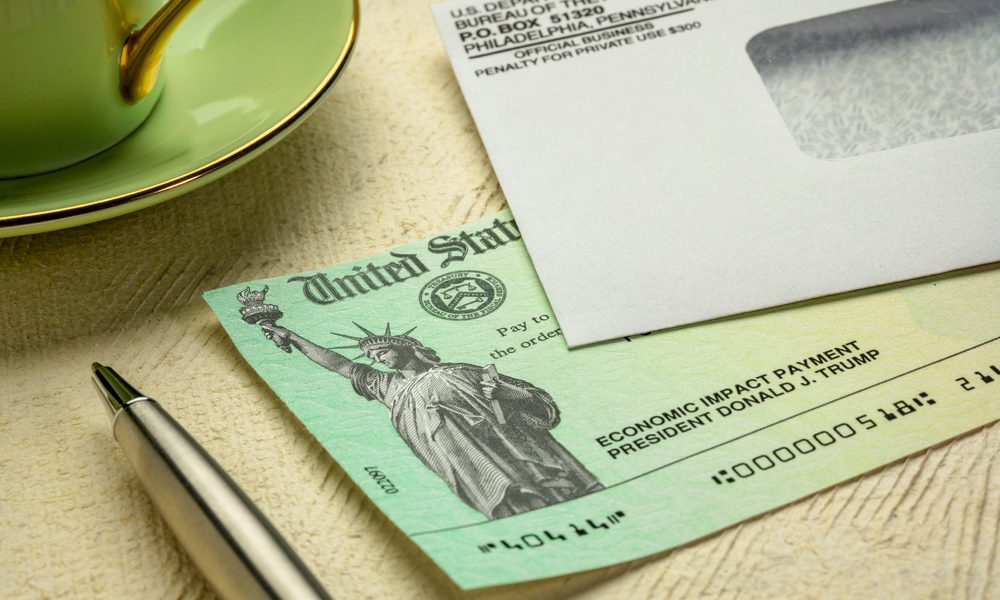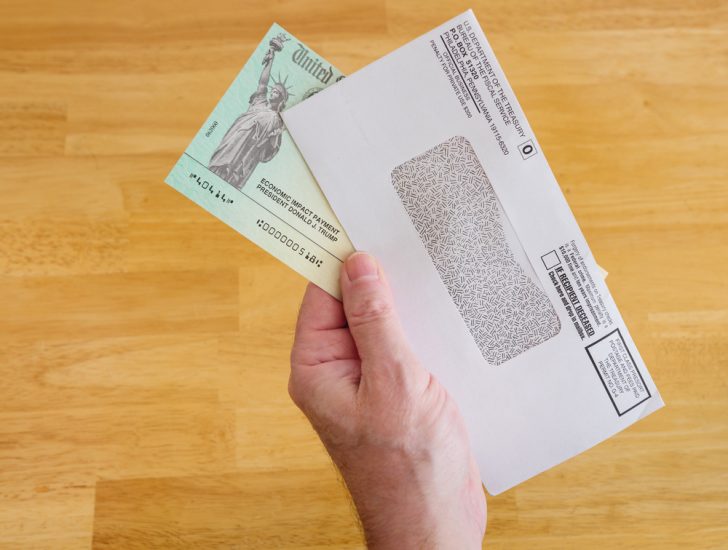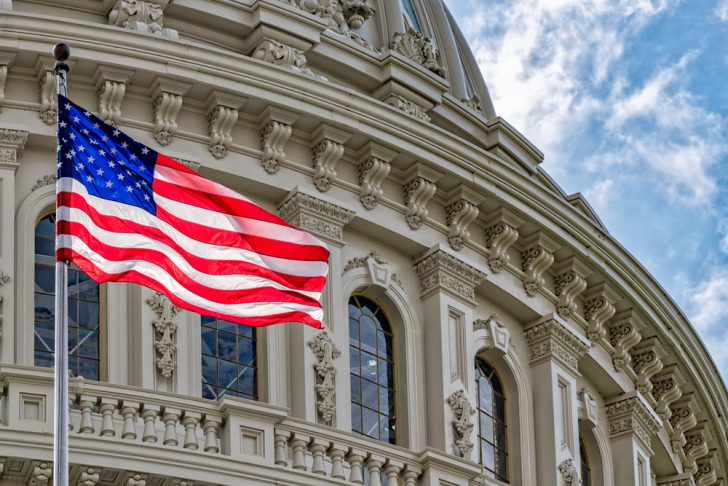
Here’s What the Second Stimulus Bill Means For Your Retirement Savings

At the turn of the year 2020, as part of the Consolidated Appropriations Act, Congress passed a successive COVID-19 relief bill, which was signed into law on 27th December. While many are touting the $600 stimulus check that comes from bill passing, it’s important to highlight the provisions that announce changes to your retirement account.

Shutterstock | Look out for a $600 check in your mailbox
For your retirement savings, here’s what the stimulus bill might mean.
ELIGIBLE FOR COMPANY RETIREMENT CONTRIBUTIONS…
… but laid off?
Many companies have vesting schemes to encourage employees to stay long term. Through these schemes, they continue contributing to each employee’s retirement account. In theory, an employee must stick with a company for a particular amount of time to get the full amount on their 401(k).
For most companies, 20% is added each year, which means your full match will be reached with a company in 5 years’ time. If an employee leaves the company, whether or not voluntarily, they are not entitled to the funds. However, in cases where a company endures partial termination, meaning a 20% lay off of company staff, employees could lay claim to their funds.
Therefore, with the mass lay-offs, we witnessed during the pandemic, if you were amongst the unlucky many who were fired last year, you could have potentially unlocked thousands of dollars in your 401(k).
That is… until the bill was signed.

Shutterstock | Both houses of congress passed the act in December 2020
For the tax year 2020, the IRS rule has been relaxed under the Consolidated Appropriations Act 2021. Therefore, if a company can prove that they have 80% of the workforce they had as of 31st March 2020 by 31st March 2021, it will not be considered to have undergone partial termination. Terminated employees will have no right over the vested funds if companies comply with these rules.
HEAD TO HEAD WITH THE CORONAVIRUS…
…but faced other disasters, too?
Another bill that was brought into effect on 27th March 2020 was the CARES Act, which permitted penalty-free premature withdrawals or a larger-than-normal loan for 401(k) members. This, however, came with the risk of lower compound investment growth.
Unfortunately for Americans, the coronavirus wasn’t the only issue to be tackled as hurricane nor wildfire season seemed to take a break last year. Therefore, under the Consolidated Appropriations Act, people affected by natural disasters too could opt for a penalty (but not tax) free tax-advantaged retirement accounts or even larger-than-normal loans.

Shutterstock | Places left forlorn by natural disasters also received relief
Bottom Line
Last year was extremely hard on Americans- and not just because of the pandemic. The new bill aims to provide relief to both individuals and businesses, in whatever possible manner state agencies can manage. It’d be best to thoroughly peruse the Consolidated Appropriations Act to determine what kind of relief you are eligible for.
More in Advisor
-
`
Matthew Perry Foundation Launches Addiction Fellowship at MGH
The impact of addiction on individuals and families is profound, and the need for specialized medical care in this field has...
February 13, 2025 -
`
Celebrity Couples Who Have Ended Their Relationships in 2025
2025 has already seen its fair share of celebrity breakups, and the year is just getting started. From heartfelt announcements to...
February 6, 2025 -
`
How Trump’s Policies Will Reshape Artificial Intelligence in the U.S.
The United States witnessed a significant political shift as Donald Trump took the presidential oath once again. His return to the...
January 31, 2025 -
`
Millie Bobby Brown Shuts Down Age-Shamers with a Powerful Message
From the moment Millie Bobby Brown first appeared as Eleven in “Stranger Things,” she captured hearts worldwide. But growing up in...
January 25, 2025 -
`
Why Outsourcing Payroll Services Is a Smart Business Move
Managing payroll is no small task—it’s a crucial part of any business that ensures employees are paid accurately and on time....
January 15, 2025 -
`
These AI Stocks Should Be on the Watch List of Investors in 2025
The buzz around AI stocks is growing louder than ever. With artificial intelligence shaping industries like healthcare, finance, and tech, smart...
January 8, 2025 -
`
Why the Starbucks Workers Strike Is Expanding Across U.S. Cities
The Starbucks workers’ strike has gained significant momentum, with employees in more U.S. cities joining the movement to address unresolved issues...
January 2, 2025 -
`
Are Shawn Mendes and Camila Cabello Still Close After Breakup?
The connection between Shawn Mendes and Camila Cabello continues to intrigue fans worldwide. Their shared history, from chart-topping collaborations to a...
December 24, 2024 -
`
Here’s What It Takes to Become a Professional Physical Therapist
Physical therapy is a career that blends science, empathy, and problem-solving to help people recover from injuries or improve mobility. Knowing...
December 19, 2024















You must be logged in to post a comment Login